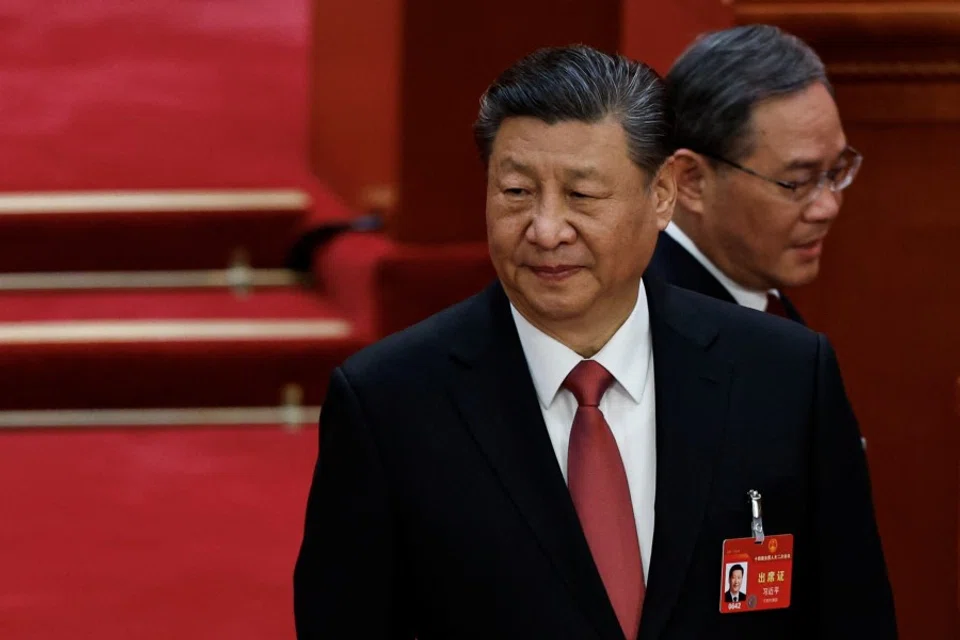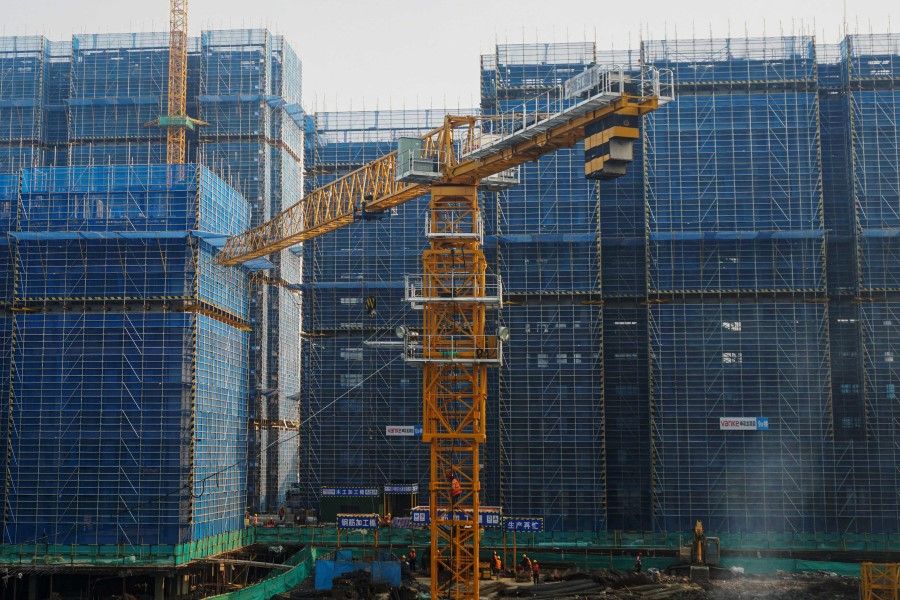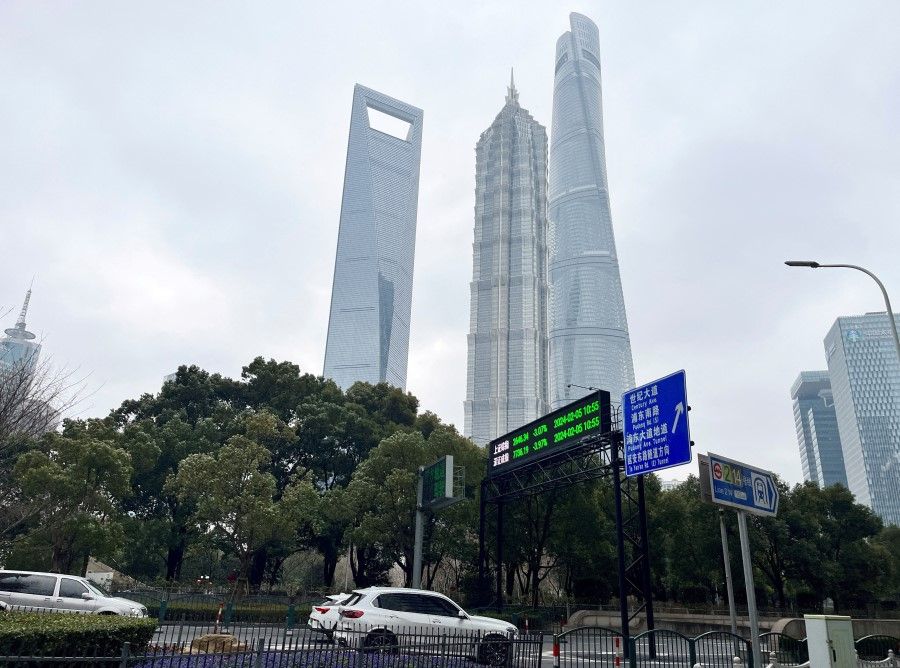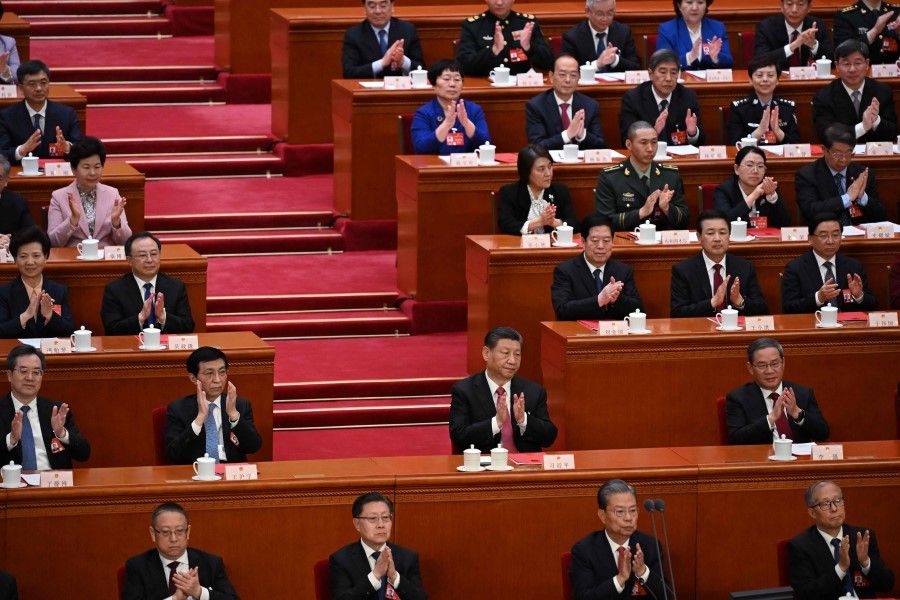Xi Jinping's conundrum fixing the Chinese economy

The slowdown in China's economic growth is attracting global attention. The biggest reason is that the real estate industry, which has accounted for a quarter of GDP, is experiencing an unprecedented recession. Compared to 2019, before the coronavirus pandemic, 2023 witnessed a staggering decline in both new home construction and sales, with figures plummeting by 54% and 59% respectively.
Due to strong intervention by the Chinese government, there have been no acute symptoms of a bursting bubble, such as a dramatic fall in property prices or bankruptcy of property developers. However, homeowners who have experienced a decline in property value have gone into money-saving mode, and consumption remains sluggish.
In addition, local governments, which have relied on urban land sales for 30% of their total revenue, are also facing severe financial difficulties. It is fair to say that the Chinese economy has entered a period of a "slow bursting of the bubble economy".
The root cause of China's current economic slowdown is that its economic growth, based heavily on debt and investment over the past decade, has reached its limit.
Past economic growth model reached its limit
The trigger for the unprecedented property recession was the excessive measures taken to suppress the property bubble since 2020. But could China's economy have continued to grow at a cruising speed of 5% without these measures? I think not. The root cause of China's current economic slowdown is that its economic growth, based heavily on debt and investment over the past decade, has reached its limit.
The cumulative amount of capital investment in the industrial sector, government infrastructure investment, and real estate investment amounted to 715 trillion RMB (about US$100 trillion) in the 15 years from 2009 (after the global financial crisis) to 2023. Moreover, most of its financial resources come from interest-bearing debt.

Although this huge amount of investment boosted economic growth during this period, it also led to a lot of wasteful public investment and speculative real estate investment. Debt cannot be repaid with inefficient investment. Thus, China's entire balance sheet has accumulated a lot of pressure from poor quality "assets" and potential bad debt.
Toxins need to be purged
In any other country, the bubble would burst, like vomiting or diarrhoea after eating something bad to expel toxins from the body. In China, however, the government intervenes heavily in the economy by suppressing the decline in property prices and arranging refinancing for zombie companies that cannot repay their debts ("hidden government guarantees"). As a result, the bubble has not burst and the toxins have continued to accumulate.
The analogy to toxins used here refers to bad debts and interest that should normally have been written off. To use another analogy, loans credited for inefficient investments are like underperforming employees employed by a company, and the interest charged on these bonds is like high wages paid to those underperforming employees. As the number of such employees increases, the company faces difficulties.
As China keeps putting off handling bad debts, refinancing puts pressure on new lending, resulting in illicit wealth transfers in the form of meaningless interest payments. My raw estimate puts the scale of wealth transfer at about 4 trillion RMB annually, or 3% of GDP.
... the issue above has worsened this uneven wealth distribution and skewed economic growth.
Those who will benefit from the transfer will be the government, the state-owned sector and the wealthy with large assets, while those who suffer will be households with loans and growing private enterprises. China has always been a country where the government, the state-owned sector and other "superiors" receive a large share of the wealth distribution while the distribution to the people is low, and the issue above has worsened this uneven wealth distribution and skewed economic growth.
The slow bursting of the housing bubble is just one aspect of the deterioration of balance sheets throughout the economy. The recent economic downturn appears to have been caused by excessive measures to contain the housing bubble. Still, it was bound to happen even if those measures were not taken.

In Premier Li Qiang's report to the 14th National People's Congress (NPC) in March 2024, he said the government will issue 1 trillion RMB of ultra-long-term special government bonds, which will not be counted in the budget deficit, and will continue to issue them over the next few years, not just once. This is likely in response to calls from home and abroad for central finance to support economic growth.
However, the stock market is having none of it, and I feel there are two reasons. First, there is disappointment that the report did not come up with any new measures to address the serious real estate problem or the local financial crisis.
Since the reason is rooted in structural issues such as skewed wealth distribution, there can be no recovery, however long it may take, unless there is structural reform.
Structural problems need to be addressed
Another reason is the government's unwillingness to address the structural problems that are at the root of the economic downturn. The current economic downturn is not a cyclical phenomenon that can be endured for a few years and then recovered. Since the reason is rooted in structural issues such as skewed wealth distribution, there can be no recovery, however long it may take, unless there is structural reform.
Specifically, this includes dealing with bad debts and improving the social security system to improve the distribution of wealth among the people. As for the local fiscal crisis, there is no hope that land revenue, which has been a major source of income, will return to that of the good old days. In other words, a structural review of revenue and expenditure sharing (with the central government) is necessary.
However, handling bad debt will put further downward pressure on the economy, and the strengthening of social security and local fiscal measures will put a heavy burden on the central government's finances. If - as people say - President Xi Jinping is more concerned with national security than economic growth, the growth rate will have to be set a little lower for the time being.

The reason for not lowering the 5% growth target this year is related to the promise Xi Jinping made to secure a third term as president. Xi promised a "great rejuvenation of the Chinese nation" and even promised a goal of "substantially increasing per capita GDP to the level of a 'moderately developed country'".
To achieve this goal, he needs to keep growth at 4.5% or higher. He does not want to be criticised for lowering the growth target and questioned for his re-election.
Bolder steps need to be taken
To address its structural problems while maintaining economic growth, China's central finance must be bolder in issuing more bonds and increasing spending. And now that China has become a net external creditor power comparable to Japan, it can digest its massive bond issuance domestically.
According to Japan's Ministry of Finance, Japan's net external assets at the end of 2022 were 418.6 trillion yen (US$2.76 trillion); 335.8 trillion yen for China, and 233.6 trillion yen for Hong Kong. However, both within the Chinese Communist Party and among the Chinese people, there is a deep-rooted idea that if the government issues a large amount of government bonds, inflation will eventually set in and the economy will ultimately collapse.
If the Xi Jinping administration effectively eliminates the obstacles impeding fiscal soundness, it can sustain a certain level of growth in the interim while gradually addressing underlying structural issues. But from another point of view, China's economy will look like Japan's after the bursting of the bubble economy, and so China could be resistant to that.
However, if the Xi administration hesitates, the economic slump will not be resolved, the local fiscal crisis will deepen, and social unrest will grow. Will the obstacles hampering fiscal soundness remain until the administration is pushed to the point where "national security is threatened"?
